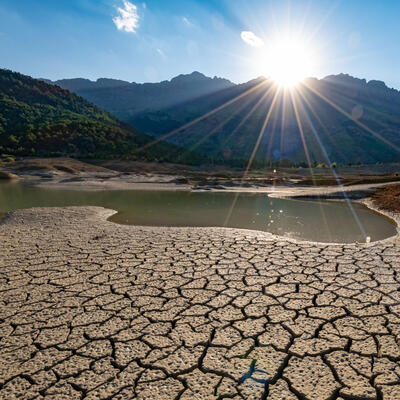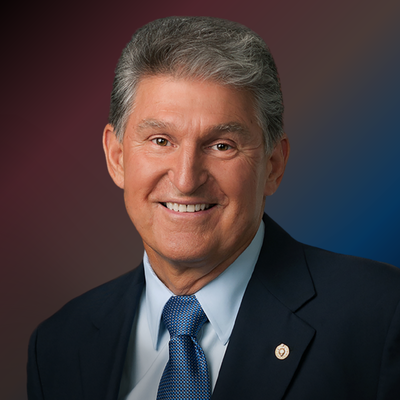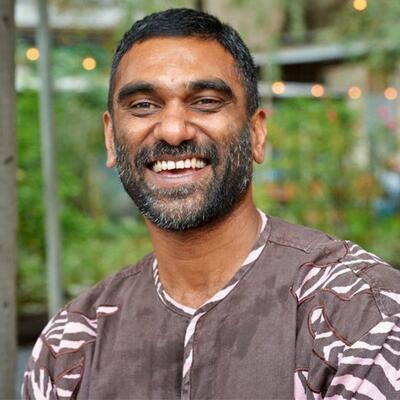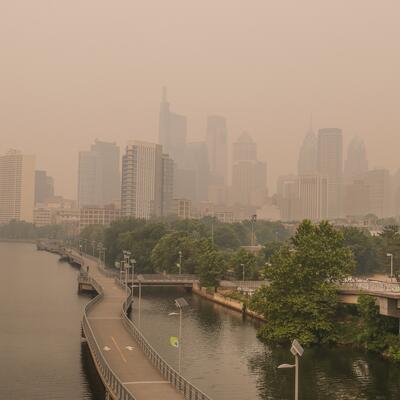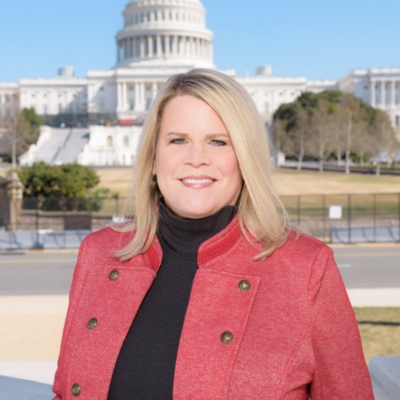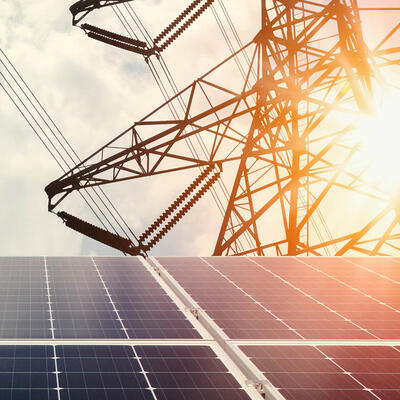
Mark Carney, Fatih Birol and the Narrow Path to Net Zero
Guests

Mark Carney

Fatih Birol
Summary
Five years ago, most of the world’s nations entered into an agreement to dramatically ratchet down their carbon dioxide emissions with the goal of keeping planetary warming to 1.5 or 2 degrees Celsius above pre-industrial levels by midcentury. Reaching that goal, it is hoped, will avert the worst consequences of climate disruption.
Currently the world is burning fossil fuels at rates that will push carbon pollution far higher than the goals set by the Paris Climate Agreement. So is achieving net zero by 2050 still possible?
Mark Carney is an economist and banker currently serving as the UN Special Envoy on Climate Action and Finance. He says part of the challenge of addressing climate change is “the tragedy of the horizon;” we may set ambitious targets, but human nature’s tendency toward procrastination gets in our way.
“Once the physical manifestations of climate change are so enormous and immediate, it’s too late,” Carney says. “So, we need to act now. And the challenge is to pull the future to the present and motivate people in the present to make the types of investments and changes that are necessary.”
In his new book Value(s): Building a Better World for All, Carney explores the ideas of “what is growth, what is value, and the extent to which we as a society value sustainability, value solutions that move our country, our planet towards net zero.”
Carney believes firmly that one of the tools necessary is harnessing the power, innovation, and dynamism of the market, paired with a realistic carbon budget.
“It's that element of the equation that far too many for too long have set aside,” he says.
The International Energy Agency recently laid out a roadmap to make it to the net zero goal, and made headlines by reporting that meeting that target will not require any further investment in new fossil fuel projects.
IEA Executive Director Fatih Birol says the energy sector is responsible for more than 80% of emissions. His agency’s report translated government emissions targets into discrete steps required to meet the 2050 goal.
“We have looked at the entire energy sector – all these power plants, all the cars, trucks, industry facilities one by one. And we came up with over 400 measures that the governments need to put in place in order to reduce those emissions,” he says. Those include finding alternative aviation fuels and ensuring 60% of all car sales are electric by 2030. Currently, less than 5% of car sales are electric.
Birol says solar power offers huge opportunities, especially in developing countries in Africa, and believes that even China, who currently consumes half the world’s coal, will move away from that carbon-intensive energy source. We will need to marshal the current technologies and develop new ones to transition all parts of our economy and industries, he says.
“The pathway to reach the net zero 2050 is a very, very narrow pathway but still achievable if we move quickly and if we have international collaboration with governments around the world,” Birol says.
Related Links:
Value(s): Building a Better World for All
Net Zero by 2050, IEA roadmap for the energy sector
Full Transcript
Greg Dalton: Is there still time to get the world on a path to net zero emissions by 2050? Climate One’s empowering conversations connect all aspects of the climate emergency. I’m Greg Dalton. Five years ago, most of the world’s nations entered into an agreement to dramatically reduce their emissions, with the goal of keeping planetary warming to 1.5 or 2 degrees celsius by midcentury. But burning fossil fuels at our current rates will push carbon pollution far higher than the Paris Agreement goals. Mark Carney is an economist and banker currently serving as the UN special envoy on climate action and finance. He’s also author of the new book Value(s): Building a Better World for All. He tackles the question of how we can get to net zero. In 2019, he sat in the UN General Assembly, and heard these words.
[Start Playback]
Greta Thunberg: This is all wrong. I shouldn't be up here. I should be back in school on the other side of the ocean. Yet you all come to us young people for hope. How dare you! You have stolen my dreams and my childhood with your empty words. And yet I'm one of the lucky ones. People are suffering. People are dying. Entire ecosystems are collapsing. We are in the beginning of a mass extinction, and all you can talk about is money and fairy tales of eternal economic growth. How dare you!
[End Playback]
Greg Dalton: That’s Greta Thunberg at the UN. I’ve heard those words many times. It gives me chills and tears every time I hear them. You write that these words cut through the assembled presidents, prime ministers, business leaders and other dignitaries. How did they cut through you?
Mark Carney: Just as you described actually, Greg, absolutely powerful to the core. The inadequacy of the response made thus far that point and I would include still now two years on. You go to a meeting like that, you're assembled, if you’re someone like me because you're trying to do something about it. So, you to some extent go into a meeting like that feeling pretty good about yourself. And as I said a moment ago the inadequacy is exposed and, you know, that’s part of her power has been to reinforce the relentless logic of climate physics in the size of a carbon budget. And many, many contributions that Greta Thunberg has made but one of them has been to just force that math in front of a number of decision-makers.
Greg Dalton: And particularly powerful for me is the fairytales of eternal economic growth and the systems the world we live in is built on perpetual compounded quarterly growth. And we’re approaching, you know, 50 years from when The Club of Rome said, this doesn't pencil out.
Mark Carney: Yes, um, well, this is where I have a departure from her because the question and this is part of what I try to get across in the book, the point of what is growth what is value and the extent to which a value of sustainability to the extent which we as a society, value sustainability value solutions that move our country our planet towards net zero and to net zero then that will have value. And then that will compound as part of that growth. Now, it’ll be a very different type of growth than the trajectory we've been on. But the nature of growth and the nature of what we value has changed over centuries and it's relatively rare just to be clear, it's relatively rare that you move out from a trade-off of short and longer-term or people and planet or profit and planet rather. But I think there is a prospect of that happening. And the other thing I feel very strongly about is that the scale of the investment, the scale of change that's required is that we won't get there without harnessing the power the innovation, the dynamism of the market. But it has to be oriented to that end, it has to be oriented to the same end that Greta Thunberg underscores which is net zero consistent with a realistic carbon budget. In other words, an understanding of just how limited it is. And you know it's that element of the equation that, you know, far too many for too long have set aside.
Greg Dalton: And many governments and companies are making those net zero pledges. As a former governor of the UK Central Bank you're playing a key role in the upcoming climate summit in Glasgow later this year. Climate leaders, Mary Robinson and Christiana Figueres have questioned the UK's leadership of the conference of the parties or COP26 and express concern that it isn't raising ambition for governments and companies. Are they right to be worried?
Mark Carney: Well, I think everyone is right to have the highest ambitions and to challenge the efforts of people or making myself challenge my efforts as well. The ambition of the COP26, this meeting in Glasgow in November is to keep 1 1/2° within reach. Paris set the sub 2° goal that one and a half stretch goal that the NDCs the country plans at Paris at that moment were equivalent to 2.6° so they are weren’t equivalent to the objective even at the time, and then most countries didn't execute against those plans. And so, the world when the UK took up the presidency was headed well above 3° in different estimates but certainly well above 3°. So, to pull ambition back into towards that 1 1/2° is absolutely necessary and it is a high ambition. There's no mission accomplished banner though that will, you know, even if that is accomplished, banner that should be flown in Glasgow because plans are not execution. And 1 1/2° within reach is not 1 1/2° achieved.
Greg Dalton: Right. And just to reflect on that, so the world is currently on path to double the Paris stated goals. So, we’re nowhere near achieving the promise of Paris. Much of the conversation of the conferences the UN international process is based on how we value or discount the future. You write that climate change is a tragedy of the horizon. What do you mean by that and what do we do about the tragedy of the horizon?
Mark Carney: Well, I spoke in those terms because we often think of it as first and foremost a tragedy the commons, which is this problem of not having the externality price of climate change free rider problem in effect. But it's also goes to the human nature which is that we put off till tomorrow what we should be doing today and we’re irrationally impatient. And for climate change as you well know, once it becomes the clear and present danger once the physical manifestations of climate change are so enormous and immediate, it’s too late. The stock of carbon, the stock of greenhouse gases in such in the atmosphere that absent some technological fairytale to use that term, we won't be able to reverse it. So, we need to act now and the challenge is to is to pull the future to the present and motivate people in the present to make the types of investments and changes that are necessary. And part of what we’re doing on the financial side is to accomplish that. But we can only really accomplish that if in parallel social pressure consumer pressure and government policy is consistent with addressing the tragedy of the horizon and that’s the core work.
Greg Dalton: Right. And so, when you mentioned that I think of lots of examples to kind of bring that down. I think of Miami it’s built on porous sandstone so building the seawall around the city won't work. They have sunny day flooding. You used to work at Goldman Sachs many people on Wall Street are relocating to Miami. The city needs to spend $4 billion in coming decades to retreat from some places and armor the rest. The property market is booming, condos are going up banks are issuing 30-year mortgages. Is that an example of a horizon where everyone's just banking on well, I can get out before it collapses it's all about time horizons.
Mark Carney: That's right that is an example. And one of the things, so maybe I'll give a counterexample to expand on what I was saying a moment ago, which is in the UK in Canada one of these financial reforms related to climate is to conduct so-called climate stress tests. And that’s to ask banks to look at where they’re lending and think about how those whether it’s a company or in this case, real estate, how that's going to look 10, 20, 30 years out from now. And look at those assets in two ways. One is what happens if it's business as usual and we head well through that 3° then and as a consequence we have more and more extreme weather events. The sea levels rise by another 10 inches and the consequence exactly what you're saying the $4 billion isn't enough. And what is that do to the real estate that you’ve lent 30-year money against. Are you comfortable with those risks have you really thought it through. And in order to properly ask that question as opposed to just conceptually put the challenge, we banded together a group of central banks and climate experts, climate scientists, macroeconomic modelers and created scenarios, coherent scenarios which are take the catastrophe risk modeling of climate. And I can tell you as somebody who used to oversee Lloyd's of London which one of its jobs was to ensure against these types of risks. So, it's pretty sophisticated modeling, to take the economic impact and the asset level impact the Miami real estate impact in your example and challenge the banks and say, well, did you know that this is the risk you're running if you keep the mortgage to the end. What is your strategy? Is your strategy what you just said, Greg, which is well, get out before others realize this and yes it will be sold on and that’s possible. Another strategy or view could be well, we actually we don't think it's going to happen because we think that through the power of Greta Thunberg and governments and others, we won't end up in that 3° plus world. But what we need to have is our financial institutions fully or as fully informed and have the perspective that they need in order to be clear what risks they're running. There are also risks and this may sound a bit paradoxical, but there are risks with success.
Greg Dalton: Transition risks.
Mark Carney: Yeah, exactly transition risks. So, what if I'm lending, and obvious example is I'm lending to a big oil company that is in investing in the energies of the future, but it has oil reserves the last 30 years and gas reserves that last 50 years, etc. And I'm assuming that the value of those assets will be realized but because we’re successful in addressing climate change, much less oil and gas is used and these assets are stranded and there's losses there and therefore I have losses, either because I’ve invested directly in them or I'd lent against those assets. And the order of magnitude of those so-called stranded assets is enormous. 50% plus for gas and coal reserves of the known reserves that exist cannot be burned, and we still meet the Paris objectives that’s what stranded assets mean. And so, there's also that challenge put to the financial institutions now.
Greg Dalton: And you write that it’s not just oil and gas companies and banks you write that the European auto industry has about $280 billion in assets of risk at risk of being stranded because of three disruptions. Electrification of cars, autonomous vehicles and ride sharing. So, for people, listeners who have a 401(k) program that's invested in the S&P 500 or some European index, are the stock markets discounting the value of European auto stocks because some of their factories may become outdated because they’re building fossil fuel engines when the world's going electric.
Mark Carney: Well, that adjustment has started to happen we see it in the extreme evaluations for Tesla, you know, electric vehicle manufacturers and major auto makers. And of course, number of people step back and they said, well, how is that possible the number of cars that are produced by Toyota, Volkswagen, BMW, Ford, etc. all together. It just dwarfs the amount by Tesla. The answer is yes, but one has a clear future and the others have, let’s be polite, you know, have murky futures. Now, what's interesting is what has changed in Europe in the last 12 months, in Germany for example and this is most relevant. They have announced that there are no new internal combustion engine sales of vehicles after 2030. And here's an example of how you address the tragedy that’s rising you have a clear government policy like that. It tells the German auto industry where the future is and where it isn't. It's far enough off in the distance that there's time to repurpose some of those factories to invest in electric vehicles and to adjust build their charging infrastructure and so that's happening. But there are assets that are no longer worth much because they were geared to the emission’s heavy old modes of transport. But these are the types of policies that can then be amplified by a financial sector that has the right information and is thinking far enough ahead to where the future is going to be in. That's part of what's coming together. I don't want to oversell it I don’t wanna say it's all lined up but it's part of what's coming together as we speak.
Greg Dalton: You’re listening to a Climate One conversation about getting to net zero emissions with economist and author Mark Carney. If you missed a previous episode, or want to hear more of Climate One’s empowering conversations, subscribe to our podcast wherever you get your pods. Coming up, the role of insurance companies in assessing and mitigating climate risk.
Mark Carney: For the insurance covered in London, the extreme weather events have gone up three times in the course of the last 25 years. And the costs have gone up eight times.
Greg Dalton: That’s up next, when Climate One continues.
Greg Dalton: This is Climate One. I’m Greg Dalton, and we’re talking about the need for urgent and immediate action on climate with Mark Carney, the former central banker for both Canada and the UK now serving as the UN special envoy on climate action and finance. Three insurgent directors were recently elected to the board of ExxonMobil. They want to change the company’s direction to protect shareholders from losing money in the global shift away from fossil fuels. I asked Mark Carney about the impact of that election.
Mark Carney: Well, one of the things I thought is there is a return to shareholder value. If you Google engine number one Exxon presentations. So, this is the activist investor who started this process to get those directors elected. There is an 80+ page presentation which goes through basically, the outlook for value creation which goes back to our earlier conversation about growth and value and the core thesis of it and backed up with some series of analysis of numbers, is that the company Exxon had not been investing enough in the fuels of the future or the energies of the future. And that plus the prospect of stranding of assets meant that it was destroying value and that it needed the strategic change and of course that's part of the job I mean as a board member, members of boards your job is overseeing strategy and selecting the right people to run it and that's fundamental to your job. And so, the judgment obviously of the majority of the shareholders decided that this is right and voted the shares accordingly. So, it's an interesting alignment I mean very important situation, but it's an alignment of value and the future value more consistent. I don’t want to oversell it, more consistent with sustainability as opposed to value in the past which was the existing strategy the company was pursuing.
Greg Dalton: Right. So, it’s about money rather than future. I’d like to play -- we go to Jim Cramer, Arnav. So, I’d like to play a clip from CNBC's Jim Cramer and get your action on the other side.
[Start Playback]
Jim Cramer: I’m done with fossil fuels. I mean big pension funds saying this will not gonna work anymore. It doesn’t matter how good they are --
Female Speaker: Do you think that’s the biggest thing holding these guys back and not necessarily just oil production part here in the United States?
Jim Cramer: Absolutely. Look at BP, it’s a solid yield, very good. Look at Chevron buying back $5 billion of the stock. Nobody cares. And this has to do with new kinds of money managers who frankly just want to appease younger people who believe that you can't ever make a fossil fuel company sustainable. We’re in a deathknell phase.
[End Playback]
Greg Dalton: That's quite a statement from a leading figure on Wall Street CNBC to say, and he sounds bitter about this change and he points to millennial money managers and investors in the deathknell phase. Your reaction.
Mark Carney: Well, seriously I hadn’t heard it. He often sounds bitter. I wouldn’t overstate the obvious. But, no, it is quite instructive. I would parse out a couple of things. One is that I wouldn't put this down to use the term woke capitalism. I put it down to you know an assessment of where the world is going or where the world needs to go. And a more extreme section of the economy that isn’t moving fast enough. Now, one of the challenges, I think we have is that within the energy sector there are companies that are transitioning there are companies that are trying to take now finally a significant proportion of their cash flows and do what engine number one wants Exxon to do in these new directors who want Exxon to do to reinvest in a renewable energy and transition from the fuels of today to those of tomorrow. So, now, identifying those true examples as opposed to the niche you know kind of trophy investments that are intended to appease this issue --
Greg Dalton: Greenwashing.
Mark Carney: -- yeah, as opposed to really truly transform. That’s what investors have to make a judgment about. So, I wouldn't have the blanket I’m done with the entire sector any more than I would in the steel sector, which of course is hugely polluting and emitting. But it will be a period of time will run there are certain companies that are investing huge amounts in greening steel. And we need a system we need objective judgments about who's actually doing it, but we need a system that gets capital to those companies so that they can actually make those investments and takes capital away or changes the pricing at least of the companies that aren’t doing anything or aren’t moving fast enough.
Greg Dalton: So, you’re saying that some companies are greenwashing some companies are legitimate in transforming and the markets need to sort that out. I want to come back to banks and their lending. You’re obviously been central banker of two countries. The International Energy Agency recently stated that investment in new fossil fuel infrastructures inconsistent with the Paris climate goals. IEA chief, Fatih Birol is on this episode of Climate One. My question to you as Canada's former central banker is why are Canadian banks lending to line three and development of the Canadian tar sands? Is that consistent with Canada’s pledge to meet net zero by 2050 and is that consistent with the economics we’ve been talking about?
Mark Carney: New development of fossil fuels as opposed to is my interpretation of that as opposed to --
Greg Dalton: What’s already in the pipeline?
Mark Carney: Yeah, what’s in the pipeline, what's maintaining. But I think the, if I can make the basic point which is being asked of an investor or a bank which is that how does this energy asset fit into the energy transition that needs to happen if we’re going to achieve our climate goals. And what is happening, you know, when the UK took over the presidency, we had 30% of global emissions where in some country that had some form of net zero commitment. Today it’s 70% and climbing of global emissions in countries that have a form of net zero commitment. The consequence of that is it’s cascading down to the level of the company and the financial institution. And the question is do you have a net zero objective what’s your plan to achieve it and then the judgment increasing will become well which of these is credible is real, including, is it real in terms of the company has the management capability to actually execute against the planet. Might be the best intentions, but them not able to pull it off. And so, what I'm saying is true of any asset, but it's certainly absolutely true of energy assets which is well how does this fit in with this transition. What market share you’re implying you’re going to have 10 years, 20 years out if you’re maintaining production for example, in fossil fuels or even increase in production and is that credible. Or you effectively saying we’re not going to do we collectively are not gonna accomplish what we’ve signed up for.
Greg Dalton: Insurance companies another big part of the financial market. They were some of the earliest corporations to sound the alarm on climate risk they know the numbers and some see them as constructive actors. Others say insurance companies will exploit climate to raise prices and fatten profit margins. I talked with one insurance CEO who shrugged and said, you know, we reprice our policies every year. The risk goes up, we can raise our prices, right? So, how do you see insurance and reinsurance company’s role in driving decarbonization of the global economy?
Mark Carney: Well, there are few things and let me reinforce that point you just made which is that's exactly what happens as their former regulator what would happen, these are the most sophisticated managers of climate risk. If you want a discussion about how bad, how much things have deteriorated in terms of physical climate implications and where it could go, talk to a property and casualty insurer or a reinsurance company because that's what they do all the time. And what they do is they change the pricing because it's riskier or they stop covering certain areas, you know, some of that Florida real estate not gonna get insurance on it down the road if we’re on this trajectory. So, that's the first. And second is that insurance companies on the asset side of their balance sheet. So, they write these risks they take these risks but they invest over on the other side so they have money to pay off and make a profit hopefully for them and their shareholders. On the asset side they been some of the earliest movers on divesting of assets or managing down their climate exposure and they’re some of the most sophisticated in terms of assessing the contribution of their portfolio. Some of the big European insurers actually publish the warming contribution of their portfolio to the planet. So, it tends to be I mean for some of the big ones right now it's about 3°. Let’s say the world is warming three and a quarter they’re at 3° but then they’re explicitly looking to manage that down. So, to sell assets that are bigger contributors because they’re not moving fast enough and by companies that that are reducing. So, what we’re also seeing and one of the things we want to have in place for this big meeting in Glasgow on the insurance side is underwriting. So, giving insurance consistent with companies that are transitioning to the net zero. So, it's a question of how you get insurance cover if you're operating the sector, but you're ignoring the transition. So, insurance is, I view it as a leading indicator of what, well, a faithful reporter what's happening on the ground what they won’t insure a leading indicator of how bad things could get because that's their job to think about that. And then the question is are they responsible steward of their funds both on where they invest and what they're willing to underwrite. Just to give you the straight number I mentioned in the book, but for the insurance covered in London, the extreme weather events have gone up three times in the course of the last 25 years. And the costs have gone up eight times so the insured cost and that's adjusted for inflation, a good central banker adjust for inflation. So, that gives you sense and then of course that which is uninsured, why I shouldn’t say of course but just to point it out has gone up an even greater amount because they're pulling back.
Greg Dalton: Yeah, and that’s leaving people either uninsured or putting that risk onto the balance sheets of states and governments and taxpayers. Economists are stereotypically rational to the point of being emotionally closed off. Although the field has gone toward behavioral economics lately whether or not you know, the purely rational people. I'm just curious personally for you we try to bridge the personal and systemic here. We’re talking about all of these numbers that are just so grave and I wonder how you handle working with the magnitude of these risks and deal with these doomsday scenarios. How you deal with that on personal emotional level?
Mark Carney: Well, I'm trying to focus on what we can do about it in a rational way and how to organize the system so that the incentives are there to address it. And to be clear, I'm very conscious that there's no financial sector or answer to this alone. I mean we need government policy we need people making choices and of course we need, in the end we’re gonna need more innovation. We’ve had tremendous innovation and low carbon technologies, and we can go a long way with those but we can’t get all the way to the end without further innovation. So, first is I deal with it by trying to be part of the solution and knowing something accumulated over the years about how markets work and how they can be a force for good is setting that up. I would say this, Greg, that there's been a lot of progress in recent years on this. It is mainstream, very rapidly, so that makes me more optimistic. But then when I sit down and look at the scale of the other side of the numbers to scale the challenge the size of the carbon budget, I find it very difficult. And the thing that keeps coming back to me virtually every day is, you know, you run out of time. We’ll have this great conversation, but we will run out of time. And it just always comes back to me it’s like everything with climate change is not enough time.
Greg Dalton: So, bottom line here as we wrap up. Climate is the biggest market failure of all time because we get individuals and companies use the sky as an unpriced sewer. And you're involved with lots of groups that are trying to change the rules of the game while it's being played capitalism to reform from within. Can markets self-correct to address this big failure of climate change?
Mark Carney: I think they can. I do think they can. I mean just to be clear that there’s a very large proportion of people in markets who view this as first and foremost a major commercial opportunity, a chance to make a very large amount of money. Because societies have decided to address this issue and that's gonna show up in what people you know what kind of car they drive what they eat, you know, where they go on vacation. But it's also gonna show up in government rules and regulations and laws and carbon prices and other things. Now, if that second element isn't followed through by the political process and we all know how difficult the political processes is. People won’t make as much money we won't make as much progress. So, finance certainly won't do it on its own, but we have the collective we have the attention of the financial industry now that this is a major strategic issue. And I’ll add one other thing, just to give a sense is it is increase, I hear this all the time that getting to sustainability is like the Internet. In other words, it’s something that affects absolutely everything which is true. And therefore, you have to be knowledgeable and you can make a lot of money or you can lose a lot of money for not thinking about it in those terms. And of course, like the Internet if we remember, when I say the Internet, I mean going back to the mid-90s. The information superhighway it’s used to be called. But it is something that has seeped into all of our lives and we don't, you know, we don’t even know but there are these waves of euphoria and then a bit of despair and then, you know, kind of bounces back up. And that’s what we’re gonna need in order to get there.
Greg Dalton: Right. Well, Mark Carney is an economist and banker currently serving as the UN special envoy on climate action and finance. He’s also author of the new book Value(s): Building a Better World for All. Mark Carney, thanks for sharing your insights on Climate One. And I hope that Glasgow is a big success that raises ambition because we certainly, there’s a lot riding on it and we need it.
Mark Carney: Thank you very much, Greg. It’s a true pleasure to be on.
Greg Dalton: You're listening to a conversation about the challenges of getting the world to net zero emissions by 2050. This is Climate One. Coming up, the head of the International Energy Agency on what steps will be needed to get us there:
Fatih Birol: One ton of C02 going into the atmosphere from Jakarta or from Los Angeles or from Paris, it has the same effect on everybody. The emissions don’t have a passport. So, therefore we have to find a global solution here. (:14)
Greg Dalton: That’s up next, when Climate One continues.
Greg Dalton: This is Climate One. I’m Greg Dalton. The International Energy Agency recently made headlines by creating a roadmap to get the world to net zero emissions by 2050. The report determined that we don’t need to invest in new fossil fuel supply projects to meet projected demand. Fatih Birol, Executive Director of the International Energy Agency, unpacked this latest report and its findings.
Fatih Birol: What is happening today that more and more countries around the world. United States, Canada, all European countries, Japan, Korea, New Zealand and China, they made commitments to bring their emissions to net zero by 2050. Why? Because the scientists tell us it is the only way that we can keep our planet, more or less, as it is now. Now we look at the realities of life, energy sector is responsible for more than 80% of the emissions. So, if the world all these countries their economies need to go to from high levels to zero by 2050 huge changes need to happen in the energy sector. So, what we’ve done, we have translated those government targets, targets imposed by the scientists to energy sector. What needs to happen in the energy sector so that the emissions decline and go to net zero by 2050. We have look at the entire energy sector all these powerplants, all the cars, trucks, industry facilities one by one. And we came up over 400 measures that the governments need to put in place in order to reduce those emissions. Let me give you one example. In 2030, 60% of all car sales should be electric cars. Today, it is less than 5%. To be in line with those targets it should go 60%. So, if we make these steps, more electric cars, alternative fuels to oil in the aviation, we will not need oil as much and oil demand will decline so that we reach our targets. If this happens, we won’t need to invest in new oil exploration. We don’t need to discover new oil fields. The ones we have today is enough to meet declining oil demands. So, I see that the pathway to reach the net zero 2050 is a very, very narrow pathway but still achievable if we move quickly and if we have international collaboration among the governments around the world.
Greg Dalton: Right. And there’s different pathways. The low collaboration pathway takes us out to like 2090 before we get to net zero. The high international collaboration pathway gets us I think 2050. The auto industry already seems to be sort of pointed in that direction. Maybe there are questions about the speed and durability of that commitment. But that raises questions for the destruction of oil demand. I recently interviewed Frank Macchiarola, Senior Vice President with the American Petroleum Institute and he said your agency got it wrong on new supply. He said that growing global population and growing global demand for energy in emerging economies mean that new fossil fuel supplies are necessary. How has the oil industry responded to this report?
Fatih Birol: So, first of all I should say the colleague you interviewed in your program is half right, half wrong. Growing population, growing economy needs more fossil fuels, I wouldn’t say fossil fuels, they would need energy. Fossil fuel is not equal to energy. Energy is … for example in Africa today, I am seeing Africa will make a big move in the direction of solar energy. Solar energy is becoming so cheap that last year more than 90% of all powerplants built in the world were solar.
Greg Dalton: But isn’t there also been an uptake recently that solar prices, that narrative or declining solar prices --
Fatih Birol: Yes, solar prices went up recently but I think this is a temporary optic because of the technical issues if it continues to be under low side and we will see each of global power markets for many years to come. Especially I am keen about Africa because in Africa we still have two out of three people in Subsaharan Africa having no electricity, no access to electricity. And can you believe it in Africa the continent which gets the brightest sun, most sun and the amount of powerplants from solar in Africa is only one third of in the United Kingdom. So, this is a heartbreaking data for me but I believe Africa will make a big push in terms of solar energy and bring tens of millions of people electricity through solar. Of course, some countries will still use natural gas, oil and others but if the electric cars, become the first choice of the customers, the population around the world, with the declining cost that will be a big shift from the current car models. Now, have the oil industry reacted, mixed reactions some European and some North American now are taking our report as a basis to develop investment strategies. But some others, for example one Middle East oil minister thought we are too optimistic, this is a beautiful dream. He called it, nicknamed it La La Land.
Greg Dalton: La La Land.
Fatih Birol: Yeah. Another minister from a big Eastern European oil and gas producer said, it is far too optimistic that such a technological change happens. I respect all of these views but what I don’t respect is that we cannot discuss, dispute the need for action to address climate change. This is, in my view out of question.
Greg Dalton: So, the net zero scenario and visions of 90% reduction in coal by 2050. Today, coal is declining around the world, but it is growing in China. So, some people would say that a lot of great things can happen but coal in China could outweigh other positive changes. So, what do you see regarding any indication that China will change its path on coal?
Fatih Birol: You’re completely right. And what China will do what China will decide in general on climate change and energy will decide whether or not the world can reach its climate goals, first off. And especially in terms of coal, today half of the coal in the world is consumed in China, the other half everybody put together. So, this is just to put the point stronger. Now, I see that even in China there is a weakening of the commitment in coal, this is number one. Number two, the declining cost of solar energy together with wind, onshore wind and offshore wind will make even existing coal plants not profitable. Number three, in China, but also in India, there is another driver which will lead to reduced coal use which is air pollution. And you will see that the Chinese, the citizens in the big cities are not very happy for the air pollution coming from the coal plants. And there are maybe hiccups here and there some zigzags but I would expect that China will also move in a direction that we will see a terminal decline of coal.
Greg Dalton: How much of an impact has COVID had on fuel switching and the carbon curve. You said that oil took the biggest hit. Have we hit peak oil demand as many have suggested because of structural decline in oil demand caused by COVID?
Fatih Birol: Last year, one year ago, we wrote it down and I said, the oil will not peak unless governments take right policies and provide the incentives for the alternatives. People are thinking that we will not drive as much as before because there is the teleworking and the people have now better understanding of the environmental challenges they are much more environmentally aligned. I don’t buy it. I don’t buy it. There should be strong either regulatory or fiscal incentives for the drivers for the people to move them in the right direction. And I said, if the governments do not take the necessary measures, we will go back where we were before the peak. And our numbers show that as of next year, if no changes happen, we will be there where we were before the COVID.
Greg Dalton: There's also an ongoing debate about technology and innovation. One camp says technology exists that needs to be deployed which will drive down cost. The other camps say, no, existing technology is not enough. We need big new innovation to decarbonize the global economy. Where are you on that?
Fatih Birol: Since I am in Paris, in France I would say in French answer yes and no, so in between. So, why yes, why no? Yes, because there are some technologies such as the solar wind efficiency electric cars which are definitely it can have a massive expansion of tools because they are already in the market and which is a very good news. But -- they alone will not bring us to our climate cause. They would be very important measured drivers but we need huge decarbonization of iron and steel industry huge driver, cement, all the trucks to convert electric cars but trucks are very important or the buses or aviation. We cannot run the jets by solar energy at least for now. So, we need new technologies in addition to what we have now, different technologies. The existing ones and without them being part of the solution especially those sectors which we call hard to evade sectors it will be difficult to decarbonize them. So, we need both of them.
Greg Dalton: So, the pathway your scenario for net zero by 2050, which matches some of these countries’ commitments, China is out to 2060, is now less than 30 years away. When I look back 30 years, 1991 doesn’t seem that long ago to me. I don’t think humans are very good about looking that far into the future. So, how do you convince people that 2050 is actually really soon, especially when it comes to energy and are facts and charts and figures the best way to really reach people and drive home that urgency?
Fatih Birol: I completely agree with you. It is the reason what we have done between now and 2050 we have milestones every year what we have to achieve what we have to do. And as of this year, we are going to look what countries promised against how they perform. So, are they on track or off track? And we are normally an energy organization, our normal counterparts are energy ministries, energy companies. But since one month I am talking with all the big investors, financial institutions because of the very reason that our report in my view gave an unmistakable signal to the investors. You have the risk of putting your money in the old technologies which in turn means that you will make big losses. And there may well be an opportunity in new clean technologies where there may have lucrative profits for you. We gave this unmistakable message with the numbers, facts and figures and it is the reason we are seeing a huge interest from the institutional investors and the pension funds, private institutions, etc. So, the investments that will be made in the next few years will show which direction the world will go including the ones in the United States.
Greg Dalton: Yeah, we’re seeing that the increasing investor interest, increasing investor importance, pressuring Exxon Mobil, shareholder resolutions, all those sorts of things. COP26 is coming up in Glasgow in November that’s the International Climate Summit. And we talked elsewhere in this episode with Mark Carney who’s playing a leading role advising British Prime Minister Boris Johnson on that who’s the Chair of that conference yet most countries have not updated their pledges made when the Paris climate agreement was reached six years ago. The numbers are not encouraging. How concerned are you about the announced national plans and is there any indication of rising ambition going into Glasgow?
Fatih Birol: The issue is, Greg, one ton of C02 going into the atmosphere from Jakarta or from Los Angeles or from Paris or from Oslo, it has the same effect on everybody. The emissions don’t have a passport. So, therefore we have to find a global solution here. Now, when it comes to COP26, I am really hopeful. Hopeful for two reasons. One, there is a strong political momentum. The recent G7, seven largest economies of western countries came up with a very strong statement, they have endorsed the report that we reported that we are talking now. What do I expect? I expect that this positive momentum turns into A) providing a clear signal to the world population. We are going to fix this problem all together. And second, for the emerging world, there is a need to make give some support in order to mobilize investment in clean energy technologies. Because in the next 30 years more than 90% of the emissions come from emerging world and only a small proportion of the clean energy investments go there. So, how we can unlock this because we have enough money, capital in the world but money doesn’t go to Indonesia, doesn’t go to India. What kind of mechanisms we will create to make those investments lucrative for the investors. So, this is the second expectation I have from COP26 and we are working very closely with the UK government to make sure that we will come up with some clear outcome from COP26. It is very important this one, this COP26. It is like Elvis Presley; it is now or never. So, if it doesn’t work now, it will be very difficult to again turn back to have such political momentum to get it again especially when the United States is back to fight against climate change.
Greg Dalton: So, to sum up a little bit here what you're saying is we have most but not all of the technology we have enough money, but it's not going to the right places. So, direct technology and the money we already have, and a large part of that can be, if we direct the money in technology we have, a lot of this can be solved. So, the opening line of an IEA report says, “The last 12 months of seeing enormous upheavals in energy markets around the world. Yet the challenges of transforming the global energy system remain urgent and daunting.” You know where I'm quoting from? It’s the first line of an IEA report world energy outlook from 2009, 12 years ago. And it's almost the same language used today. So, what makes you think that the next 12 years will be different although just kind of be saying the same thing about upheaval and daunting challenges.
Fatih Birol: First of all, it shows that we are consistent with ourselves which is a big news. And the second thing is that the world energy system is a bit like a huge tanker in the sea. The direction changes very slowly. It is not like the IT sector which is like a bicycle you can make your maneuver very, very quick. But now, what I am seeing is technological development are progressing so quickly the cost of clean energy are dropping down so quickly that I expect a huge change happening. And this may that in fact that the all major economies around the world seemed that they are determined to adjust climate change. Political momentum is there, determination is there the technologies are getting cheaper. And I think as I said before, there is no lack of capital and we have a roadmap of the world. I am really hopeful that in the next 10 or 12 years the situation will change significantly compared to today. Whether or not we will be able to reach this 1.5° target, I don’t know. We do our best even if we don’t reach 1.5° but if we reach 1.6°, 1.7° temperature increase it is much better than the 3° temperature increase where we are now.
Greg Dalton: Right. I think we’ve had about 1° of warming so far. So, 3° triple what we've had so far that's a scary world. Fatih Birol is Executive Director of the International Energy Agency based in Paris looks at the global energy system and created scenarios for getting to net zero emissions by 2050. Dr. Birol thanks for coming on Climate One and sharing your insights.
Fatih Birol: Thank you very much. Great to talk to you.
Greg Dalton: On this Climate One... We’ve been talking about the narrow path to net zero emissions with Fatih Birol and Mark Carney. To hear more Climate One conversations, subscribe to our podcast on Apple, Spotify or wherever you get your pods. Please help us get people talking more about climate by giving us a rating or review. It really does help advance the climate conversation.
Brad Marshland is our senior producer; Ariana Brocious is our producer and audio editor. Our audio engineer is Arnav Gupta. Our team also includes Steve Fox, Kelli Pennington, and Tyler Reed. Gloria Duffy is CEO of The Commonwealth Club of California, the nonprofit and nonpartisan forum where our program originates. I’m Greg Dalton.
